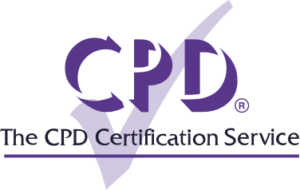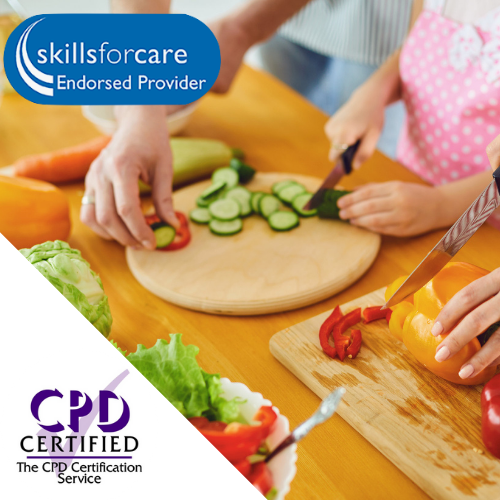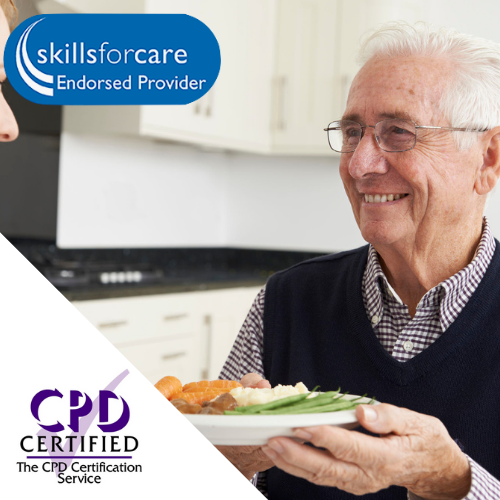In this Food Handlers CPD Guide
Why do Food Handlers need CPD?

Food handlers have a responsibility to ensure the food that is served within the food establishment is not only of good quality but is also safe to eat. According to the Food Standards Agency (FSA), approximately 2.4 million cases of foodborne illness occur every year in the UK. Also, it is estimated that more than two million people are living with a diagnosed food allergy (NARF).
Continuing Professional Development (CPD) training enables food handlers to have the latest knowledge on food hygiene and safety requirements and legislation. CPD also helps food handlers understand the hazards that can cause foodborne illness and the precautions needed to prevent their customers from being harmed by unsafe food.
The food establishment is also likely to be subject to the food hygiene rating scheme (FHRS). CPD can help food handlers understand what is needed to achieve a high rating. This can enhance a business’s reputation and increase turnover.
What our customers have to say
Dan King
Mobilisation, Training & Performance Manager

Sophie Aiken
HR Manager

Harriet Lee
Retail Recruitment Manager

What CPD courses do Food Handlers need?
Food handlers have many responsibilities and day-to-day tasks within a kitchen, depending on their role and type of workplace. Some may work in privately-owned restaurants, schools, hospitals, care homes or on cruise ships. Regardless of what they do and where they work, all food handlers will need to understand their legal duties regarding food hygiene and safety.
CPD courses that food handlers need should help them understand their legal duties regarding food safety and preventing and controlling food safety hazards. CPD training courses on food safety and hygiene for catering, HACCP and allergen awareness can provide food handlers with the knowledge of what is required.
Food handlers may also have other responsibilities within a food establishment and may need CPD in other areas, e.g. health and safety, COVID-19, first-aid, customer service skills etc.
Download our CPD trackerA guide to CPD for Food Handlers
Food hygiene and safety standards are updated regularly. Therefore, food handlers need to keep abreast with the latest developments and changes in legislation to remain legally compliant and ensure the food they produce is safe. CPD gives food handlers the knowledge and skills to keep up to date with these changes and understand their responsibilities within the kitchen.
Food Handlers must be competent to carry out their roles and responsibilities effectively, regardless of their level. Competence means having a combination of relevant training, knowledge, skills and experience. Regular CPD training is a vital part of achieving competency.
There are professional bodies and member institutions that may make CPD a mandatory requirement for members. Some professional bodies may even require members to undertake a certain number of CPD hours annually. Some businesses may also require their food handlers to undertake CPD as part of their role.
If you are not already aware of the CPD training required for your role and responsibilities, you should ask your employer and check current standards for food handlers. You can also think about where the gaps are in your knowledge and skills and which areas you could improve. For example, you may want to become more involved with HACCP and taking a relevant course can help you achieve this.
There are many opportunities for career progression for food handlers, but this will ultimately depend on what your goals are and what you want to achieve. CPD can help you move up the career ladder.
It doesn’t matter the type or size of your food establishment, where you work, or what your role entails. Our e-learning courses will help you with your CPD.
CPD courses
Many things count towards your CPD, and they should be relevant to you and your goals as a food handlers. For example, you can attend seminars/lectures/webinars, read books/journals, start mentoring and undertake work-based learning. You can also complete e-learning, which can also count as part of your CPD.
Our e-learning courses are CPD certified and accredited under the CPD Certification Service. When you complete your course, you will gain an accredited qualification and CPD points (hours). The more training courses you undertake, the more knowledge and CPD points you will achieve.
We have different levels of courses for some areas, e.g. HACCP levels 2 and 3. If you are looking for more in-depth knowledge on a topic, then a level 3 course would probably be more suited to your needs.
To make the most out of your learning, you should adopt a structured and consistent approach to your CPD by undertaking training that meets your personal development objectives as a food handler.
CPD certificates
Once logged in, you can work through your course in a few hours (depending on the type of course), and there is no time limit for completion. You can work through it at your own pace at a location of your choice. Very rarely do students need help, but if you do, our staff are here to assist.
After completion of your course, including passing the quiz, you can download your PDF certificate immediately. Our professional-looking certificates are fully CPD regulated. They can provide evidence of training to local authority environmental health officers, professional bodies, prospective employers and even customers.
You can log onto your account at any time and download your certificates. You can keep them on file or email them through to your manager. It is also easy to print off a hard copy of your certificate and keep it with your other qualifications and awards in your CPD portfolio. You will also receive a copy of your certificate in the post.
Logging CPD hours
Every course that is CPD accredited will have a number of points assigned to it. One CPD point is equal to one hour of active learning, which means that you will get one point for every hour you spend on a CPD activity.
The number of points you will earn on completion of the course is in the course description, along with an estimated time to complete. This will give you your CPD hours.
You can keep a log of your CPD hours for the year and make a record of whether you have met your learning objectives. It is important to maintain an accurate CPD record as part of your CPD portfolio and personal development plan.
Logging CPD hours and keeping training records will have a positive impact on your overall career as a food handler. Also, knowing more about the hazards that can make food unsafe, and ensuring they are properly controlled, can prevent illness and injury to customers.
Keeping evidence
Your certificates and any other documentation relating to your CPD should be retained as evidence. Some professional bodies require CPD records to be kept for a period of five years, and employers may want you to keep them for longer. You will need to check any requirements for CPD documentation retention times specific to your role.
There is not a prescribed format when recording your CPD. Although, you may be required to use a specific format by an employer or professional body.
Your CPD record may be audited by your employer or by an external party, such as environmental health officers and professional bodies. This is another reason why keeping evidence of your CPD is important.
Renewing CPD certificates
It is recommended that you renew your CPD certificate every two years. However, your employer may want you to complete a refresher every year. This will depend on the rules within your food establishment.
Refresher training also counts towards your CPD. Therefore, you can log CPD hours for every course you undertake, including those taken as a refresher.
























